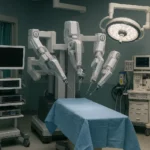Multiple Sclerosis Treatment Options – Effective Treatments & Care

Multiple Sclerosis (MS) is a disease that disrupts the central nervous system (CNS), thereby interrupting brain-to-body communication. MS is an autoimmune illness where the immune system breaks down the protective sheath of nerve fibers and myelin. As a result, inflammation, nerve damage, and a variety of neurological symptoms ensue. Understanding multiple sclerosis treatment options is crucial for managing symptoms and slowing disease progression.
For MS patients and their families, staying updated on the latest treatments and research is crucial. Furthermore, with advancements in medicine and technology, new multiple sclerosis treatment options are emerging that offer hope for better symptom management and potentially slowing disease progression. In this article, we’ll explore current and emerging multiple sclerosis treatment options and highlight the latest research in MS care.
Symptoms of Multiple Sclerosis: Early Signs & Common Indicators
MS impacts an individual differently, and symptoms differ depending on the type and degree of disease. The most prevalent symptoms of multiple sclerosis are as below:
- Fatigue
- Muscle weakness and spasm
- Arms and legs feel numb
- Difficulty with coordination and balance
- Vision loss
- Speech and swallowing troubles
- Memory and cognitive impairment
Causes of Multiple Sclerosis
The etiology of Multiple Sclerosis (MS) is unknown, but the following factors play a role in its etiology:
- Autoimmune Response: The immune system of the body attacks the myelin sheath, killing the nerves.
- Genetics: The inheritance of MS in the family is genetic, making individuals more susceptible.
- Environmental Factors: Deficiency in vitamin D and certain viral infections, such as Epstein-Barr virus (EBV), have been linked to MS.
- Smoking: Increases the risk of developing the disease and makes it progress faster.
Risk Factors of Multiple Sclerosis
- Gender: Women are more likely to get MS than men.
- Age: They are most often diagnosed between ages 20 and 40.
- Vitamin D Deficiency: Deficiency due to insufficient sun exposure is a potential etiology.
Recent Multiple Sclerosis Treatment Options
Although MS is not curable, available treatments suppress symptom development and deter disease progression through the regulation of the immune system. The strategies below are the main approaches:
- Immune Modulation: Individualized therapies reduce relapses and slow down disease activity.
- Lymphatic Regulation: Medication that prevents the immune cells from crossing over into the nervous system.
- Selective Intervention: Strategies suppress the pathological aspects of the immune system while maintaining those that are beneficial.
- Regulation of Inflammation: Treatments stabilize nerve function in progressive MS.
Treatments enhance quality of life and effectively treat MS.
Multiple Sclerosis Treatment Options – Physical Therapy & Lifestyle Changes
- Physical therapy and physical training enhance the strength and flexibility of the muscles.
- Similarly, nutrition and digestive health are progressively viewed as essential in controlling the symptoms of MS, as the study of the gut microbiome indicates a relationship between bacteria of the intestine and immune response.
- Moreover, getting enough rest and learning about stress management could limit flares.
Advanced Treatment Approaches
1. New Therapies and Medications
New treatments and medications are being tried in clinical trials. Additionally, the emphasis is on better patient outcomes from better immune system balance and nerve regeneration.
2. Stem Cell Therapy
Stem cell therapy is a promising approach that substitutes ill immune cells with healthy immune cells. Moreover, some studies indicate that stem cell transplantation can restart the immune system and slow down disease progression in some MS patients.
3. Gene Therapy
While still in its early research phases, gene therapy aims to alter genes involved in immune system function and potentially result in long-term management or even reversal of MS.
4. Immunotherapy Advances
Emerging immunotherapy technologies focus on stopping the immune system from attacking myelin. Moreover, these treatments are meant to increase the effectiveness and specificity of MS therapies.
Promising Research & Future Treatments for Multiple Sclerosis
The future for the treatment of MS is becoming more hopeful due to revolutionary research. Among the most encouraging developments are:
Reversing Symptoms and Restoring Nerve Damage
Researchers have started to explore the possibility of rebuilding myelin using medicine and lifestyle measures. Additionally, researchers are measuring the effectiveness of these treatments in reversing nerve damage from MS through clinical trials.
The Role of Gut Health and Diet in MS
The microbiome, specifically the gut microbiome, plays a role in immune function. The literature indicates that diet or probiotic modulation of gut bacteria can enhance MS symptoms and health.
Artificial Intelligence and Technology in MS Care
Artificial intelligence (AI) is being utilized in predictive model development for multiple sclerosis diagnosis and tracking. Innovative multiple sclerosis radiology techniques, including MRI imaging, are allowing doctors to diagnose MS earlier and tailor treatment plans according to patients’ specific needs.
Why Choose India for Multiple Sclerosis Treatment?
India is emerging as a destination of choice for the world’s best MS treatment due to several reasons:
- World-Class Specialists: Well-trained physicians specializing in the latest MS treatment techniques in the world.
- World-Class Hospitals: The best hospitals in the world with the most modern MS diagnosis and treatment technologies.
- Low-Cost Treatment: Equally good care at a lesser price than in Western nations.
- Clinical Trial Availability: Numerous clinical study programs and clinical trials of the new MS drugs are conducted in India.
- Holistic Care Approach: Emphasis on integration of modern medicine, physical therapy, and alternative treatments like Ayurveda and yoga.
How Regimen Healthcare Helps You Access the Best Multiple Sclerosis Treatment Options?
Regimen Healthcare strives to bring MS patients in touch with quality treatment centers and the best experts. We offer:
- Medical Expert Guidance: Helping patients get access to the best neurologists with experience in treating MS.
- Access to Best-of-Class Therapy: Connect patients with hospitals that offer the latest and most advanced treatments, including the world’s best care for multiple sclerosis (MS).
- Second Opinions & Diagnostic Guidance: Assisting patients in finding their way through multiple sclerosis imaging, testing, and multiple sclerosis radiology services.
- Customized Treatment Plans: Counseling patients on considering new avenues like stem cell therapy, gene therapy, and immunotherapy.
- Clinical Trial Guidance: Referring patients to current research studies for promising breakthrough therapies.
- Travel and Accommodation Support: Facilitating foreign patients to access the best medical treatment without any inconvenience.
Conclusion
Research has been the great catalyst that has enabled the discovery of new treatments to be developed for the treatment of patients suffering from multiple sclerosis, including immunotherapy, gene therapy, and stem cell therapy, to mention a few. Consequently, MS remains one of those mysteries, which has not been solved to date, as an illness that has no cure to this day. Thus, developing new treatment models may instead look toward enhancing the quality of life or slowing down the process of MS.
If you or your loved one suffers from MS, don’t delay—consult with an expert and discover the latest treatment. Regimen Healthcare will assist you in receiving the best treatment. Call us now to speak with a representative, discover your treatment options, and take the first step toward better health!
FAQs
Q1: Is MS a genetic disease?
A: MS is not genetic, but a family history of MS makes one more likely to develop the disease.
Q2: Is MS life-threatening?
A: MS is not life-threatening by itself, although the effect of severe MS can be harmful to one’s health. The majority of people with MS live a normal life span if well managed and well cared for.
Q3: Does MS necessarily cause disability?
A: No, the vast majority of patients with MS generally remain symptom-free or experience well-managed symptoms and continue to live active lifestyles. However, with increasing disease progression, function and mobility become compromised.
Q4: Does stem cell treatment for MS work?
A: Some evidence indicates that Autologous Hematopoietic Stem Cell Transplantation (AHSCT) can reset the immune system and consequently stop disease activity in a few patients with MS.
Q5: In what ways may diet affect symptoms of MS?
A: Additionally, a balanced gut microbiota may regulate immune activity, and researchers report that certain diets, like the Mediterranean diet, reduce inflammation and symptoms.









